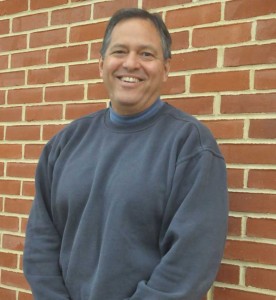If elected to school board, says he will work to balance needs of taxpayers, students
By Mike McGann, Editor, UnionvilleTimes.com
It all comes to down to a balanced approach, says Rob MacPherson, candidate for Unionville-Chadds Ford School Board from Region A.
In these difficult times, MacPherson says that a school board must strike a balance between the needs of students and those of the greater taxpaying public.
“I think you have to recognize that both elements exist and listen to both,” he said.
MacPherson, who faces Victor DuPuis for the lone Region A seat on the ballot, said he rejects extreme views — either that there should be no limits whatsoever on spending for students, or conversely, those in the community who feel they shouldn’t have to pay any taxes for schooling. He seeks to be somewhere in the middle, maintaining an excellent school system without bankrupting taxpayers.
“You have to find the middle ground,” he said. “Some people may not get what they want, but you make sure everyone gets what they need.”
He makes it clear, though, that he feels there is a generational social contract for those whose kids have graduated and moved on to continue supporting the school district through taxes, as so many other did when their kids were in school.
“I take exception with those who say: ‘I’ve never had kids in this district, I never will. I shouldn’t pay any taxes.’ There’s an obligation there,” he said. “But there are also limits, too.”
With some in the community on fixed incomes, or those who are “house poor” — those with expensive homes, but little other assets and find themselves with less income than in the past, those limits must always be kept in mind, he said.
“There’s a lot of hardship out there,” he said. “I’m not sure that’s always recognized.”
MacPherson makes it clear he doesn’t think there’s room for taking and keeping an absolute view and ignoring input from others.
“We can’t just insist ‘my position is right’ and not listen to others,” he said. “I’ve seen that from both sides at times.”
And with tax and state revenue dwindling, the fact remains that less money is coming into the district — so ultimately, less needs to be spent.
“Can you think of a better lesson for our kids?” he asked. “Live within your means.”
He acknowledges that many people — including his family — moved into the Unionville area at least in part because of the excellent schools. So, despite the fiscal realities, there is also an obligation to maintain the strength of the district.
So how to balance those, at times, conflicting needs?
Creative management and better use of technology, to provide equal, or better educational opportunities at a lower cost. MacPherson pointed to use of video conferencing technology as one way for multiple districts to share the cost of small-enrollment classes — spreading the cost of a teacher over six or eight districts, rather than one, for subjects that only a handful of Unionville students might opt to take. He said he hoped that the Chester County Intermediate Unit could provide some suggestions in having multiple districts coordinate such classes. The more resources than can be shared — and cost shared – with neighboring districts, the better the opportunity to save money, while still offering a robust educational experience.
Like many of his fellow board candidates, MacPherson supports the idea of well-vetted advertising and sponsorships — ideally, he said, from local businesses — to provide additional revenue. While he knows some parents object to the concept, he said that today’s kids are so bombarded with marketing messages already — and often wear clothing that is little more than a mobile ad — that he said he thinks the impact on students will be minimal, as long as it is carefully managed.
He made it clear that he feels there have to be policies put in place to make sure the right kind of ads are allowed — he specifically suggested that he felt soft drink ads probably weren’t a good match, as an example.
MacPherson,who lives in East Marlborough, is retired after spending some three decades working for the the federal government, 22 years with the Secret Service, including time working on then-First Lady Hillary Clinton’s protection detail, as well as another eight years with the Justice Department. In various roles, he oversaw training and curriculum and he cites that as offering him first-hand insight to working with both students and teachers.
EDITORS NOTE: This is the fourth in a series of profiles of the Board of Education candidates. Next up: Gregg Lindner.
Previously run profiles:
Region A
Region C








Trackbacks